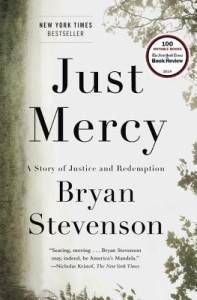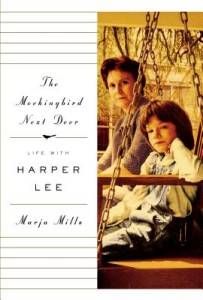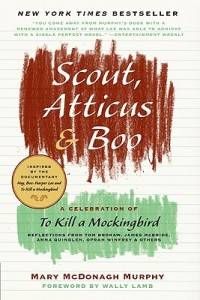Until Go Set a Watchman was released today, readers who loved To Kill a Mockingbird needed to look elsewhere for readalikes for the well-loved novel. Since nonfiction is my jam, I started digging for a few true stories you can pick up to revisit the themes, characters, and author of both novels.
Crime and Race
Tom Robinson’s trial and conviction in To Kill a Mockingbird shocks both Jem and Scout, who struggle to understand how race affects the outcome. Sadly, our criminal justice system is still plagued by these problems. These two books shed some light on that theme: Just Mercy by Bryan Stevenson – If you only decide to read one book from this post, please make it be Just Mercy. It’s an incredible read, and not just because of it’s connections to To Kill a Mockingbird. Bryan Stevenson is an African American lawyer who now works representing poor residents in the South, many who were wrongfully placed on death row. The main story of the book is that of Walter McMIllian, a resident of Monroeville, Alabama (Lee’s hometown) who was put on death row after a sham trial in front of a mostly white jury. The stories Stevenson shares are so powerful, I was moved to tears several times, and can’t recommend this one enough. Unfair: The New Science of Criminal Justice by Adam Benforado – The stories in Just Mercy and Tom Robinson’s trial in To Kill a Mockingbird clearly show that our criminal justice system has some major flaw. In this book, law professor Adam Benforado argues that even if the system worked correctly, our inherent but hidden biases can lead lawyers, judges and juries astray in many cases. I think this one sounds fascinating.
Biographies
A list of books related to To Kill a Mockingbird wouldn’t be complete without a mention of some books that try to tell the story of the book’s famously reclusive author. These are the two that seem most promising to me: The Mockingbird Next Door by Marja Mills – Like Go Set a Watchman, this 2014 memoir by a journalist/neighbor of Harper Lee and her sister, Alice, raised questions about Lee’s interest or consent to publicity. But for anyone curious about Lee’s life, as well as the changing worlds of small Southern towns, this book is a must read. Mockingbird: A Portrait of Harper Lee by Charles Shields – This 2007 biography was the first attempt for an author to tell Harper Lee’s life story, despite the fact that she stopped granting interviews in the 1960s. Shields interviewed about 600 acquaintances and reviewed extensive correspondence
Books About Books (and Movies)
And finally, one of my favorite ways to dig deeper into a work of fiction is to see what other smart people have to say about the book and story. Surprisingly, there aren’t many critical collections of essays on the book – these are the two I could find: Scout, Atticus, and Boo by Mary McDonagh Murphy – This collection of interviews, released to celebrate the 50th anniversary of the book, focuses on the ways that the book has impacted readers, actors and public figures. Harper Lee’s To Kill a Mockingbird: New Essays by Michael J. Meyer – This is a more academic look at the book with essays that offer educational, legal, social and thematic perspectives on the book. Unfortunately, this one is a bit pricey, but may be worth it for those looking to dig deep into the novel.


